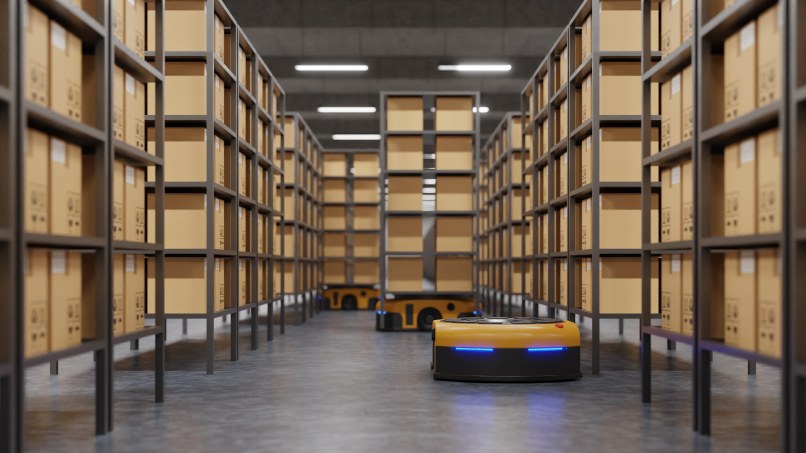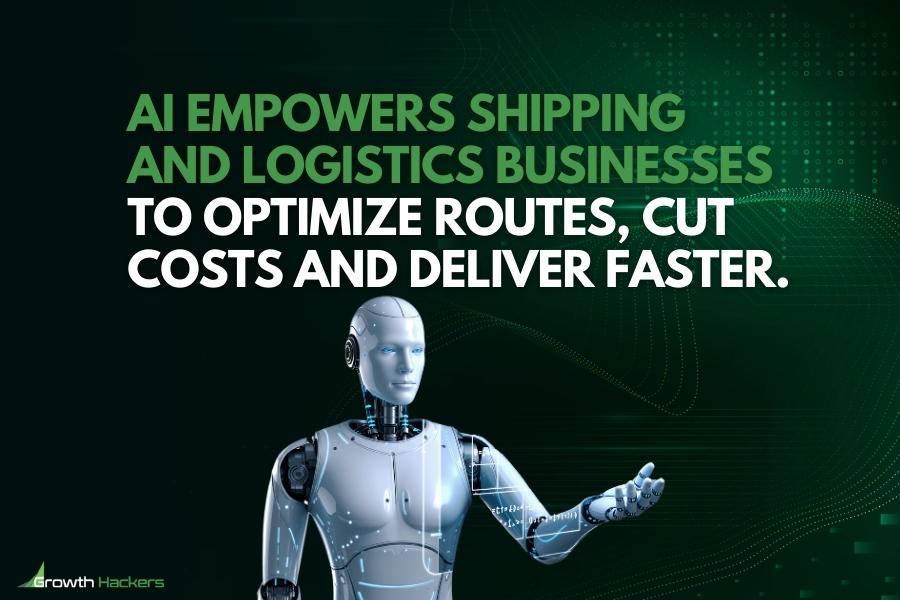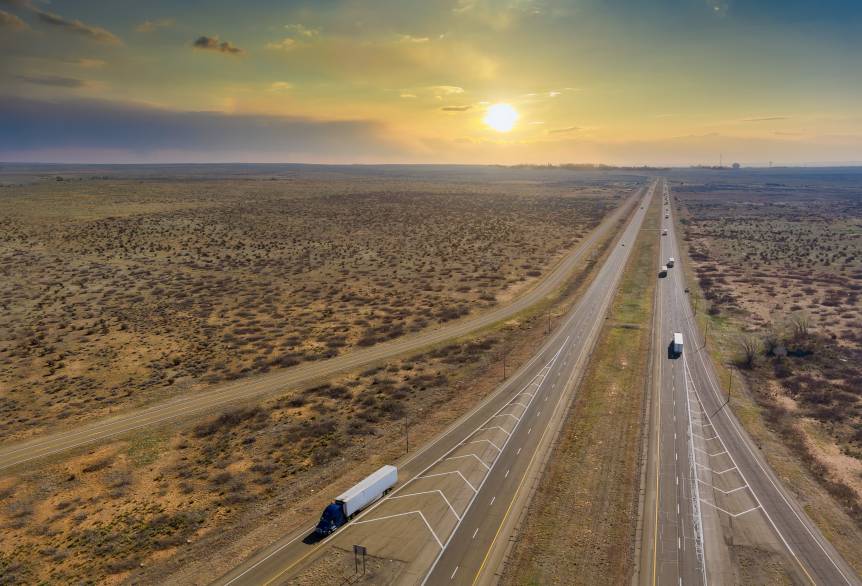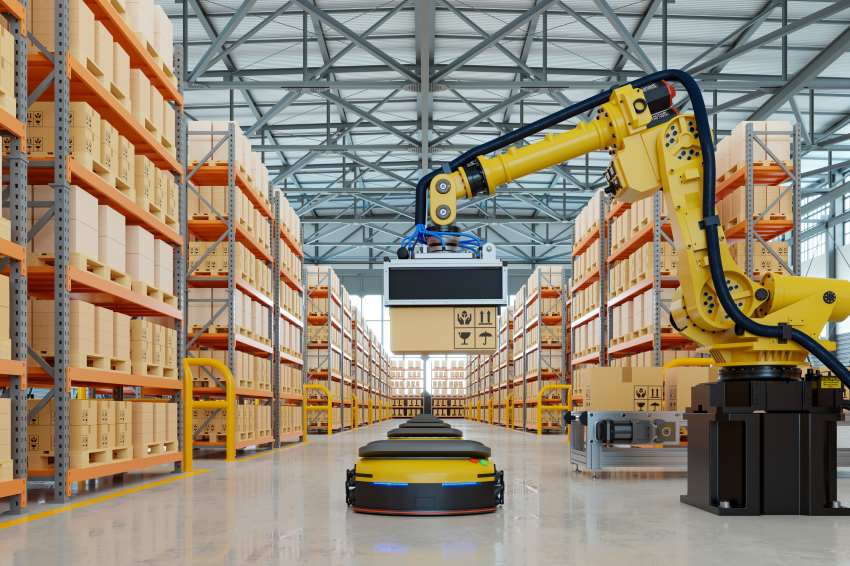The logistics industry has grown significantly in recent years. This is in large part due to the need for more resilient supply chains.
This funding is helping to revolutionize the logistics industry, driving innovation that is enhancing operational efficiencies and optimizing shipping and transportation. While many different tech innovations are disrupting the industry, the one that seems to be having the most significant impact is artificial intelligence (AI).
The Need for AI-Driven Efficiencies in Logistics Businesses
With the rapid growth occurring in logistics and shipping, accuracy and efficiency are crucial. The global flow of goods and services, otherwise known as globalization, involves a complex web of interconnected processes. From raw material procurement and developing the product to shipping the final product to the customer, there are many parts of the supply chain process where things can go wrong.
Globalization also affects industrial processes and shipping, as there are new expenses, more information to keep track of, fluctuating demand, environmental concerns, and overall more complex operational processes. All of these challenges point to a need for more advanced technological solutions, such as AI.
Advantages of AI in Logistics
AI has emerged as a powerful supply chain tool, making itself indispensable to logistics companies, especially startups. Startups face their own unique challenges in a rapidly growing and competitive industry, let alone the challenges of globalization, making it even more necessary for them to adopt and integrate innovative technologies like AI to help them succeed.
There are many advantages and benefits that come from using AI in logistics, including:
- Reduced operational costs;
- Optimized shipping;
- Enhanced warehouse safety;
- More accurate data;
- Better logistics forecasting.
AI has the power to completely transform the shipping and logistics industry, making supply chain management more efficient and effective and also helps with customer engagement. This also means supply chains will be more resilient should globalization lead to future setbacks.

Ready to transform your shipping and logistics businesses by leveraging the power of AI?
Contact Growth Hackers
Applications for AI in Shipping and Supply Chain Logistics
The use cases and applications for AI in logistics are many. Here are a few examples of the integral role AI is already playing in supply chain management:
1. Risk Management
Supply chains come with inherent risks, which have increased with globalization. However, AI-based risk management tools, such as predictive analytics, can help when it comes to identifying and preparing for risks ahead of time to mitigate setbacks.
AI-powered tools can help with forecasting various parts of the supply chain process, such as inventory, warehouse space, supply and demand, freight volume, and even weather issues that could impact delivery. Proper risk management allows businesses to model scenarios and plan more carefully to avoid any risks that could hinder the success and growth of the company.
2. Route Optimization
Not only are we starting to see autonomous vehicles, which can make shipping and transportation more efficient, but AI is particularly helpful when it comes to route optimization. Ensuring deliveries are on time and ending up where they need to be is vital as it has a direct tie to customer satisfaction and is essential for industries experiencing consumer growth.
While many logistics companies have already been using technologies to optimize routes, AI is making this process even more efficient. AI-powered tools use real-time and historical data to enhance shipping decision-making.
These tools pull in data such as traffic reports, weather, and load capacity to find the best possible routes. Some systems can even predict the most efficient times for drivers to stop for fuel or start their route, or even when to take breaks, which can help with delivery times, transportation costs, and fuel consumption.
3. Customer Service
Aside from faster and more efficient delivery, which can boost customer satisfaction, there are other AI-powered tools that can be utilized to enhance customer service. Chatbots and virtual assistants, for example, can answer customer inquiries and track shipments to provide customers with real-time updates.
This is incredibly beneficial for companies that might not yet have the funds or resources to hire a full customer service team. AI-powered chatbots can handle customer issues when a live team member is not available. These tools can also help reduce workload so customer service team members can focus on more important tasks.
4. Inventory Management
Inventory management is often a very time-consuming process. However, with AI and business intelligence, companies can focus more on the selling and shipping of their goods to turn a profit while advanced computer systems handle the inventory management.
For example, AI systems can monitor inventory levels and send alerts when there is an issue or even place orders themselves when stock is running low. These systems can also identify ways to make inventory storage more efficient or recognize when an item is slow-moving, so management can make more informed decisions.
Using AI in these ways not only makes inventory management easier but can also help companies cut back on waste or wasted resources, which can help them cut costs. Ensuring products are always in stock when needed also keeps customers happy by mitigating “out-of-stock” issues or delays in delivery.
5. Warehouse Automation
Many companies are now using AI-powered robots and smart systems to make their warehouses perfect models of safety and efficiency. Multiple robots can be placed around the warehouse that are all connected to the same platform, which can provide management with real-time data and visuals on how everything is running.
This can help with troubleshooting any issues before they get out of hand. Warehouse robotics can also help keep things clean and organized while workers focus on their tasks. In some cases, the robots can even handle the more dangerous tasks themselves, which can help mitigate risks for warehouse workers.
AI-powered monitoring tools can also help with predictive maintenance. For example, these systems can identify when a piece of equipment is due for maintenance, which can help with early fixes that could have otherwise led to a dangerous malfunction.
Overall, this can help businesses avoid costly incidents, keep their workers safe and protected, and ensure they are complying with safety regulations and standards to avoid any legal issues.
6. Cargo Security
AI-powered monitoring and surveillance technologies can also be used inside shipping vehicles to keep an eye on cargo. Cargo losses in the logistics industry are a common problem and account for more than $50 billion annually according to the National Cargo Security Council, so having these advanced tools to help mitigate losses is a major benefit.
AI-powered cameras with smart sensors, for example, can detect changes in temperature that could result in spoilage. They can also detect movement, which could indicate that cargo is not secured properly or when there is unauthorized access or cargo tampering. Remote video monitoring allows logistics teams to oversee shipments in real-time, ensuring immediate response to security threats or anomalies.

Empower your shipping and logistics business with AI today!
Work with Growth Hackers
7. Emissions Reduction
According to the EPA, supply chain operations often account for 90% of a company’s carbon emissions. In addition, overseas transportation can also pollute waterways and damage ocean ecosystems, and some estimates indicate that the logistics industry is responsible for up to one-third of the world’s carbon emissions.
As climate change becomes an ever-growing problem, it will be vital for new companies to find better ways to reduce their environmental impact. This is particularly important when doing B2B work, as many businesses are looking to green their supply chains in order to connect with consumers who are eco-conscious, comply with industry laws, and build a more sustainable planet.
Thankfully, AI is already helping by optimizing processes to reduce energy usage, waste, and fuel consumption. Warehouse automation systems, for example, can help reduce energy usage, and AI tools that help with route optimization help reduce how many vehicles are on the road as well as how much fuel is burned.
8. Workforce Management
In addition to supply chain management operations, AI can also make managing shipping and logistics workforces more efficient. AI-powered tools can help with recruitment and hiring processes to find the ideal workers, can help with on-the-job training, and can monitor day-to-day performance to help identify areas for improvement.
This is particularly useful to startups as the employees they initially hire can play a significant role in the growth and success of the company. This ensures more efficient day-to-day operations and can help with on-the-job satisfaction. This type of education can also help workers with upskilling and promoting a culture of lifelong learning, which can improve employee retention. This is crucial for smaller logistics businesses looking to make a lasting impact on the industry.
Final Thoughts on How Ai is Transforming the Shipping, Supply Chain and Logistics Industry
There is no denying the transformative power of AI in logistics. With increasing complexities and challenges from globalization, finding ways to streamline operations is imperative. AI-powered technologies can give businesses the tools they need to hit the ground running and grow their operations into successful and profitable businesses.
GrowthHackers is one of the leading growth hacking companies helping businesses from all over the world grow. There is no fluff with Growth Hackers. We help entrepreneurs and business owners transform their shipping and logistics businesses with AI, increase their productivity, generate qualified leads, optimize their conversion rate, gather and analyze data analytics, acquire and retain users and increase sales. We go further than brand awareness and exposure. We make sure that the strategies we implement move the needle so your business grow, strive and succeed. If you too want your business to reach new heights, contact Growth Hackers today so we can discuss about your brand and create a custom growth plan for you. You’re just one click away to skyrocket your business.








1 Comment
In the future, AI will be the main force for the development and simplification of technological processes. Already, technical innovations in artificial intelligence, AR, IoT, quantum computing, GreenTech and Deep Tech are simplifying the development of digital business models and helping to optimize workflows. This is the near future of most industries, including logistics.
Today, the latest ideas of artificial intelligence make it possible to accurately calculate the cost of delivery, create a wide range of different capabilities that simplify the planning of logistics processes, and facilitate the autonomous performance of many functions.
Taken together, these technical innovations and digital business models provide an excellent foundation for development in the years to come.